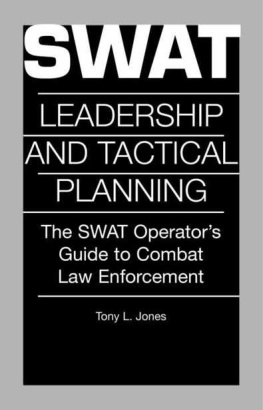POLITICAL LEADERSHIP AMONG SWAT PATHANS
LONDON SCHOOL OF ECONOMICS MONOGRAPHS ON SOCIAL ANTHROPOLOGY
Managing Editor: Charles Stafford
The Monographs on Social Anthropology were established in 1940 and aim to publish results of modern anthropological research of primary interest to specialists.
The continuation of the series was made possible by a grant in aid from the Wenner-Gren Foundation for Anthropological Research, and more recently by a further grant from the Governors of the London School of Economics and Political Science. Income from sales is returned to a revolving fund to assist further publications.
The Monographs are under the direction of an Editorial Board associated with the Department of Anthropology of the London School of Economics and Political Science.
First published 2004 by Berg Publishers
Published 2020 by Routledge
2 Park Square, Milton Park, Abingdon, Oxon OX14 4RN
605 Third Avenue, New York, NY 10017
Routledge is an imprint of the Taylor & Francis Group, an informa business
Frederik Barth 2004
All rights reserved. No part of this book may be reprinted or reproduced or utilised in any form or by any electronic, mechanical, or other means, now known or hereafter invented, including photocopying and recording, or in any information storage or retrieval system, without permission in writing from the publishers.
Notice:
Product or corporate names may be trademarks or registered trademarks, and are used only for identification and explanation without intent to infringe.
ISBN 13: 978-1-8452-0278-1 (pbk)
Preface
THE PRESENT STUDY describes certain aspects of the society of the Pathans of the Swat valley in the North-West Frontier Province of Pakistan. Except where other reference is given, the material on which it is based was collected by the author in the period February-November 1954. The fieldwork was financed by a grant from the Royal Norwegian Research Council. The analysis of the material has been aided by a Wenner-Gren Pre-doctoral Fellowship.
Thanks to the patient teaching of Professor Morgenstieme of the University of Oslo during the year preceding fieldwork, I was able to start shortly after my arrival to speak and work in the Pashto language. In the beginning of fieldwork, moreover, I was greatly aided by Ayub Khan of Thana, who served as my interpreter for two months.
I am greatly indebted to H.R.H. the Wali of Swat, who took a positive interest in this study, and to his various administrative officials, most particularly the Chief Secretary, who assisted me in every way. But their help would have availed little had I not been hospitably received by a great number of Pathans in all walks of life. They became my friends, and by their explanations and example contributed to my understanding of their society. I should particularly mention my servant Kashmali. To defend his own and his masters prestige, he carefully coached me in etiquette, explained the labyrinth of friendship and enmity between the persons I met, and thus contributed greatly both to my success with others and to my knowledge of the area.
In the analysis of this material, I have been aided by discussions with friends and colleagues in Oslo, London and Manchester. But most of all I wish to acknowledge my debts to the staff and fellow students of the Faculty of Anthropology in Cambridge for formal and informal instruction and discussion and stimulating companionship during the last two years. The present work is essentially identical with a the!lis entitled The Political Organization of Swat Pathans submitted there as a Ph.D. thesis.
Cambridge, 1957
F. B.
Contents
As Mahmoud of Ghaznis troops were returning from the conquest of Swat, his wife met the army in Swegalei Pass [by Nikbi Khel]. She inquired about her sons, but they answered evasively. Finally they told her that her sons were dead. The mother then cursed the new land, saying it should be called Ghowgha [lit.: commotion, anarchy], and may it always remain unsettled and in chaos; and so it has been up till this day.
(from a traditional account of the conquest of Swat by Mahmoud of Ghazni, c. A.D 1000)
1
Introduction
THE MAIN PURPOSE of the present study is to give a descriptive analysis of the political system of Swat, with special reference to the sources of political authority, and the form of organization within which this authority is exercised. Political systems have been described as the systems for the maintenance or establishment of social order, within a territorial framework, by the organized exercise of coercive authority through the use, or possibility of use, of physical force (Radcliffe-Brown in Fortes and Evans-Pritchard, 1940, p. xiv). But physical force, or the threat of it, is in Swat a characteristic sanction in a great many relations; and positions of authority are supported by other sanctions as well as force. Schapera, commenting on Radcliffe-Browns definition, says: In studying political organization we have to study, in fact, the whole system of communal leadership and all the functions (as well as the powers) of the leaders; and in this context such activities as the organization of religious ceremonies or collective hunts, or the concentration and redistribution of wealth, are as relevant as the administration of justice and similarly significant for comparative purposes (Schapera, 1956, pp. 2189).
This form of bibliographical reference will be used throughout. All the works cited are listed in the Bibliography, pp. 13941.
Radcliffe-Browns definition, moreover, does not apply equally to different levels of Swat Pathan organization. In Swat there are small local groups which maintain internal order through coercive authority, supported by physical force. But there are also larger populations characterized by a social order without a clear demarcation of territorial units; and physical sanctions are not applied by any organized body of persons with the purpose of maintaining this orderit is an unsought product of the way in which smaller groups meet in interaction and opposition.
Political systems constructed on this latter pattern have lately received considerable attention, since it is characteristic of the acephalous lineage organizations of many areas (see Fortes, 1953). Though the organization in Swat differs from these, the concepts that have been developed for their analysis turn out to be useful also in the present case.
The analysis of this wider system requires an understanding of the smaller groups with their internal authority system. These groups show considerable structural complexity. A major problem arises from the fact that recruitment to such groups is formally based on free choice. In many anthropological accounts of tribal peoples, one has the impression that political allegiance is not a matter of individual choice. Each individual is born into a particular structural position, and will accordingly give his political allegiance to a particular group or office-holder. In Swat, persons find their place in the political order through a series of choices, many of which are temporary or revocable.
This freedom of choice radically alters the way in which political institutions function. In systems where no choice is offered, self-interest and group advantage tend to coincide, since it is only through his own group that any individual can protect or improve his position. Where, on the other hand, group commitments may be assumed and shed at will, self-interest may dictate action whicli does not bring advantage to the group; and individuals are able to plan and make choices in terms of private advantage and a personal political career. In this respect the political life of Swat resembles that of Western societies. Many of the politically active individuals in Swat clearly recognize the distinction between private and group advantage, and when faced with a choice they tend to consider the former rather than the latter. This is most clearly demonstrated by the way in which members of any group may secede and attach themselves to another when this is to their advantage. Thus the authority systemin terms both of the relations of dominance and submission and of the alignment of persons in groupsis built up and maintained through the exercise of a continual series of individual choices.











